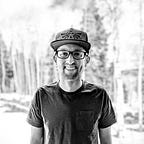What I found tracking 100+ book recommendations
The vast majority of books I read are by male authors 🤦. I didn’t include this discovery when I shared my analysis of what it took to read 52 books in 52 weeks. Specifically, 83% of the books I read over that time period were written by men.
Why didn’t I share this? Because I couldn’t spoil my follow-up research: tracking book recommendations. Since then, I’ve tracked 100+ book recommendations over several months. My goal was to clarify: does this kind of bias come from me? My network? Or the book publishing industry?
My answer? Yes.
Here is what I discovered:
Who recommends?
My professional connections. 81% of the book recommendations I received came from my co-workers, Linkedin, or similar contexts. I tried to only include actual recommendations, but sometimes I counted high praise of a book as a recommendation.
Trends I Discovered
As expected, I discovered several biases in the types of books I am recommended.
Non-Fiction Bias
94% of the recommendations I received were for non-fiction books. Obviously, this correlates with who recommends me books, but it also seemed to correlate with what the recommender knew about my interests.
Most fictional recommendations came from friends and family.
Male Authorship Bias
Correlation does not equal causation, but it was surprising to see just how closely the gender breakdown of book recommendations paralleled my previous books read. Only a 3–4% difference.
White Author Bias
I was not able to identify the race and ethnicity of all the authors I was recommended; however, my incomplete review hints that the vast majority are white.
Of the 100+ recommendations I received, I am confident claiming only 2–3 were written by women of color.
New Book Bias
Are the newest ideas the best ideas? 52% of the recommendations I received were published within the last 5 years. 76% within the last 10 years.
I work in Education. There are literally centuries of books on the subject. While new books get all the publicity, those recommendations may miss important concepts. Perhaps this is one reason why Zombie Ideas are so prevalent in EdTech.
Existing Interests Bias
It only took five categories to sort 91.4% of the book topics I was recommended. I don’t necessarily have a problem with this bias. These are all topics I want to continue learning about, but my goals as a lifelong learner include expanding my worldview and interests.
For that reason, I found myself taking a closer look at the recommendations categorized as “Other”.
Shorter Book Bias
According to The Guardian, the average book length is about 400 pages. Another analysis found books on the New York Times bestseller list were about 275 pages. On average, the recommendations I received came in at that bestseller range.
Are shorter books actually better? Or are they simply easier to sell and read?
- Mean: 308 pages
- Median: 290 pages
- Mode: 288 pages
Word count would be a better measure, but page count is what the Goodreads database provides. 🤷♂️
Brandon Sanderson Bias
The only fictional books I plan to read for a while are written by Brandon Sanderson. I’m hooked. The few fictional book recommendations I received reflect this. Nearly 100% are by this author. 😅
Diversity in Publishing
What about the broader influences at play here? There is no perfect dataset on diversity in the publishing industry. Most analyses rely on incomplete survey data or limit themselves to analyzing the authorship of bestseller lists.
Some of my favorite analyses include:
*Really cool data visualization with this one 👆
TLDR: Despite noteworthy exceptions, the publishing industry is mostly white, female, heterosexual, and non-disabled. Relevant to my results, however, is that male authors outnumber female authors within specific non-fiction genres.
My Follow-up Questions
- How do all of these metrics change within specific genres? Sub-genres?
- What about secondary authors? My analysis was focused solely on the primary or first author listed for each book.
- In what ways does the lack of diversity in the recommendations I receive reflect a lack of diversity in my own network?
- What would I learn from a similar exercise tracking recommended articles, job opportunities, events, movies, etc?
My Reflection
This was not a scientific study. It was a fun way to reflect on how I end up reading the things I do.
Humans experience hundreds of biases. It’s how brains work. Some respond to this with guilt, denial, and even anger. Personally, I find Buster Benson’s perspective much more productive:
We can’t avoid our biases. The best we can do is maintain an honest dialogue with our blind spots and commit to identifying and repairing inadvertent damage caused by them as efficiently as possible.
The results I’ve shared here helped me find blind spots. The book recommendations I receive and read are somewhat of an echo chamber. They are likely to reflect my existing interests, network, and ideas.
I’m completely fine with that in some cases, but my goals as a lifelong learner include expanding my worldview and interests. This year, I’d like to do that with the books I read.
Any recommendations?
Thanks for reading! Connect via LinkedIn or subscribe below to hear more.
